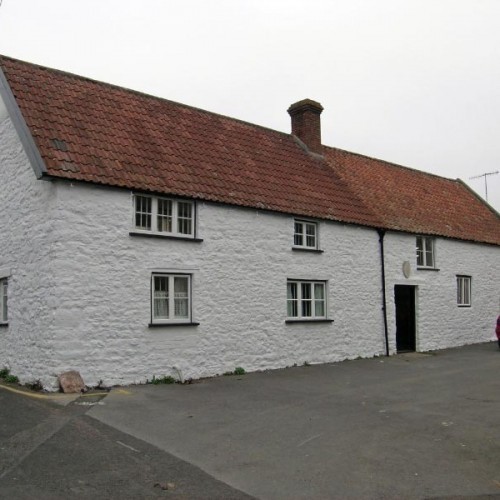You may not have heard of Hannah More, and that’s a shame. She was despised by many in her day and criticised by later writers. A Victorian politician called her ‘one of the most detestable authors that ever held a pen’. But she was a courageous and gifted Christian woman whose life changed lives.
When Hannah was born in 1745, England was at war with France. Public life was decadent and the established churches largely stagnant. The fourth of five sisters, doted upon by all, Hannah was precocious even by her family’s standards. Her father, a rather proud village schoolmaster, taught the children at home. Hannah later wrote, ‘I, a girl, was educated at random.’ So, with few prospects in the village, the sisters left the cramped schoolhouse to make their own way, starting a school for girls in up-and-coming Bristol.
Seeking success
The school was the More girls’ passport to social status and financial stability. Hannah started as a pupil, but by the age of eighteen, she was a teacher. She and her sisters enjoyed great companionship with the pupils and were also able to play host to locals of high standing, from theatre directors to the politician, Edmund Burke. During her ten years of teaching, she anticipated becoming a respectable wife, until her long engagement was broken. Yet the humiliation turned into great opportunity; as a gesture of good will, she was paid an annual amount by her wealthy ex-fiancé.
Freed from the necessity of earning hard cash, Hannah could pursue her dream career. She travelled to London, took up lodgings near the great actor-manager David Garrick, got invitations to parties and made herself indispensable. Her strategy was successful. In a period of three years, she went from being unknown to becoming the favourite of Samuel Johnson, the great dictionary writer, and became part of the ‘blue-stockings’, a group of female thinkers and writers.
Finding faith
Three of her plays were published and played around the country – a remarkable achievement for a woman; a few essays and some poems were also printed, and money started to come in. But in 1779, Garrick, her great protector, died and disillusionment with the theatre and London set in. Hannah had always been a God-fearing woman, attending church and observing the Sabbath, but that respectable religion was no longer enough. She wrote, ‘the more I see of the “honoured, famed and great”, the more I see of the littleness, the unsatisfactoriness of all created good; ….no earthly pleasure can fill up the wants of the immortal principle within.’ A friend passed her the poetry of William Cowper, ‘a poet whom I can read on Sunday! I am enchanted!’ She began reading Matthew Henry’s commentary and took away pockets full of sermons from John Newton’s church, St Mary Woolnoth. Gradually, Hannah turned from outward duty to find peace with God through faith alone.
Serving the Lord
So then, what was Hannah to do? She moved to rural Somerset, but retirement was not enough. She corresponded with Newton and grew close to William Wilberforce and the ‘Clapham Sect’, a group of evangelical Anglicans seeking to apply the Bible to society. With them, she campaigned against slavery and reached out to individuals in need, at the same time as pursuing friendships with the aristocracy and her old friends, speaking to them often of the gospel. Hannah did not always make the right choices, but she always involved herself in the world around her through education, politics, and human rights. Despite persecution and ill health, she applied her faith to each of these areas and not only thought about what was wrong but tried to bring about change. This obedience to God’s command to bring order to his creation should be a spur to us to get involved in the world in which we live.
Using her gifts
If Hannah had been busy as a playwright, she became a whirlwind in the service of God. As a gifted writer, she used her gifts to build God’s kingdom. She wrote constantly, from plays telling Bible stories which were taken around the world by missionaries, to Christian books for noblewomen. She produced novels and many tracts. Hannah’s books were distributed from America to Africa and outsold those of Jane Austen. Many might now seem quaint, and we might question some of their politics, but they did good in their time, and the works written directly on spiritual matters are still powerful today. It is a lesson for us to ensure that we use our gifts sacrificially to build God’s kingdom today as Hannah did.
Alongside her writing came organising. When William Wilberforce said in 1789 that something must be done for the neglected villages of North Somerset, Hannah and her sisters took action. They went to the small agricultural and mining communities and established numerous Sunday Schools, employing Christian teachers and eventually expanding the work to run savings clubs for mothers and evening classes for parents. The aim was to bring the influence of the gospel to impoverished places so that lives could be saved and society changed. Such a huge undertaking took significant fundraising and administration; in this Hannah worked tirelessly.
Hannah wrote, ‘We must, while we keep our hearts humble, keep our aims high… As God is unlimited in goodness, He should have our unlimited love. The best we can offer is poor, but let us not withhold that best.’ She lived out that wholehearted, big-visioned faith. Can we follow her example and with our eyes on God make bold plans and aim high just as Hannah did?
(A previous version of this article first appeared in Evangelicals Now.)
